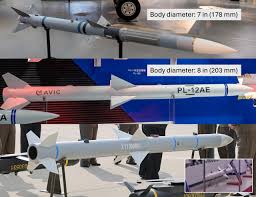
Introduction
North Korea, formally known as the Democratic People’s Republic of Korea (DPRK), has been a focal point of international relations due to its ongoing nuclear weapons program, human rights concerns, and geopolitical tensions. As 2023 unfolds, North Korea remains a significant player in East Asian politics and a concern for global security, engaging experts and governments worldwide in discussions about the nation’s future.
Political Landscape and Nuclear Proliferation
Recent reports indicate an escalation in North Korea’s nuclear ambitions, with several missile tests conducted in the past few months. In September 2023, North Korea launched an intercontinental ballistic missile (ICBM) capable of reaching the United States, following a series of shorter-range missile tests. These actions have provoked swift condemnation from the international community, particularly from the United States, which has called for stronger sanctions and a unified response from allies, including South Korea and Japan.
In response to these provocations, the DPRK’s government has maintained that its nuclear program is necessary for self-defense against perceived threats from the U.S. and its allies. Analysts warn that this cycle of testing and retaliation could lead to increased militarization in the region, further complicating diplomatic efforts.
Human Rights and Domestic Issues
Aside from its military activities, North Korea faces significant domestic challenges, particularly concerning human rights. Reports from NGOs and defectors highlight ongoing human rights abuses, including political prison camps, forced labor, and severe restrictions on freedom of expression. In early 2023, the United Nations called for renewed scrutiny of North Korea’s human rights situation, urging member states to hold the regime accountable.
International Responses and Future Outlook
The international community’s responses to North Korea’s actions have varied, with some nations advocating for engagement and dialogue, while others push for harder sanctions. The recent tensions have reignited discussions about the possibility of renewed diplomatic negotiations, particularly in light of multilateral summits attended by North Korea’s neighbors. However, with Kim Jong-un’s administration showing a propensity for aggressive posturing, the prospects for substantive dialogue remain uncertain.
Conclusion
As North Korea continues to test international patience with its nuclear program and human rights record, the world watches closely. The implications of North Korea’s actions extend beyond its borders, affecting regional stability and global security. With experts divided on how best to approach the regime, the coming months are crucial in determining whether diplomatic efforts can circumvent a potential crisis, or if tensions will escalate further. The situation in North Korea is a reminder of the complex interplay between national security, human rights, and international diplomacy.



